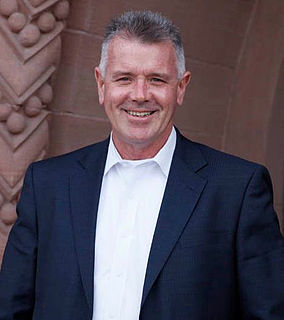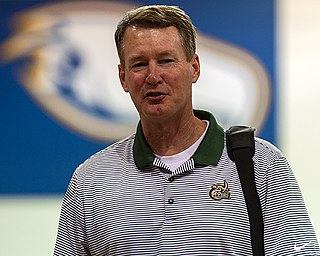A Quote by Kevin Flynn
Taking the politics out of setting the minimum wage provides fairness for workers and predictability for businesses. This legislation will also protect the most vulnerable workers and level the playing field for employers who play by the rules. These are the right steps to take; they will make Ontario a better place to work and run a business.
Related Quotes
[E]conomic liberty and creative entrepreneurship are the basis of any solution to today's social and economic difficulties. Blaming business, setting wages, and attempting to run the economy by decree from Washington only exacerbates the problems. Consider the minimum wage. It seems so simple: Tell business to pay its workers more. But a hike in the minimum wage is essentially a tax, punishing precisely those companies that hire workers with the least skills.
I know firsthand that many employers who comply with other labor standards still hire the undocumented. Many businesses pay the minimum wage and have barely tolerable working conditions because there are sufficient undocumented workers willing to accept those terms. If we care about low-income workers in this country, we need to create pressure to improve their economic condition by reducing the supply of unauthorized workers.
Evidence shows that even now, when it is illegal for employers to pocket tips, many still do. Research on workers in three large U.S. cities found that 12 percent of tipped workers had tips stolen by their employers or supervisors. With that much illegal tip theft taking place, it's clear that when employers can legally pocket the tips, many will.
That's an interesting paradox to think about. Make it legal and it's no good. Why? Because as long as it's illegal the people who come in do not qualify for welfare, they don't qualify for social security, they don't qualify for the other myriad of benefits that we pour out from our left pocket to our right pocket. So long as they don't qualify they migrate to jobs. They take jobs that most residents of this country are unwilling to take. They provide employers with the kind of workers that they cannot get. They're hard workers, they're good workers, and they are clearly better off.
Sharp increases in the minimum wage rate are also inflationary. Frequently workers paid more than the minimum gauge their wages relative to it. This is especially true of those workers who are paid by the hour. An increase in the minimum therefore increases their demands for higher wages in order to maintain their place in the structure of wages. And when the increase is as sharp as it is in H.R. 7935, the result is sure to be a fresh surge of inflation.
But can we please stop insisting that if low-wage workers earn a little bit more, unemployment will skyrocket and the economy will collapse? There is no evidence for it. The most insidious thing about trickle-down economics is not the claim that if the rich get richer, everyone is better off. It is the claim made by those who oppose any increase in the minimum wage that if the poor get richer, that will be bad for the economy. This is nonsense.


































